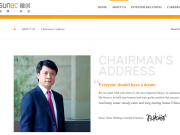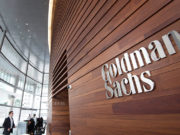BNY Mellon IM News & Views: Alcentra, Newton & Insight
BNY Mellon Investment Management (IM) | News & Views
A fortnight out from the Dutch elections, BNY Mellon’s investment managers give their opinions on what it may mean not only for the Netherlands, but France and the EU.

Paul Hatfield, Global Chief Investment Officer at Alcentra, part of BNY Mellon
The Dutch elections look to be an interesting side-show to what is happening in France, which appears to be the main focus of the market. While the Netherlands on its own is not really a large enough economy to upset the markets on its own, its potential to set off a domino effect in the EU could set up the prospect of a violent market shock if Le Pen wins in France, post a Wilders victory.
News from the French polls seems to be having the same effect on markets as the hard or soft Brexit factor, with German bunds tightening and French bonds widening when polls indicate a Le Pen victory is possible.
In loan markets, technicals are so strong that even a Le Pen victory is likely to have only a minimal and temporary effect on trading, but we may see some “stressed” names marked lower. Bonds have been fully valued in Europe for some time now, so I expect more volatility and reaction there than in loans, given how tight spreads have become.
Although the European elections have the potential to spook markets, recent economic data coming out of Eurozone countries and the UK have been pretty strong, so fundamentals augur for continued strength in markets.
Paul Brain, Head of Fixed Income at Newton Investment Management, part of BNY Mellon
The forthcoming Dutch election is, in some ways, a very significant test for the Eurozone, and yet perhaps not.
The leader of the PVV party Geert Wilders has been very anti the EU and the Eurozone. Given that his party has been leading the opinion polls this poses a risk to the establishment in Europe. That being said, he doesn’t appear to be able to gain a sufficient majority of the vote to lead without the support of other parties. Here is where the risk could subside as most of the other parties have so far refused to contemplate a coalition that includes the PVV. The risk that the market doesn’t appear to consider is that excluding the biggest party (by share of vote) from forming a government could be very divisive for the country as a whole. At the very least, we would expect the new coalition to take notice of the anti-immigration sentiment and also to be tougher on closer integration of Europe.
In France there is also a risk that the market is too complacent. Here too the chances of the Anti- establishment party making it to a position of power seems to be limited if the others are able to group together for the second round. The only risk to this is if they are too fragmented. For now the likes of Fillon and Macron need to take shots at each other to win support. If this goes too far, or if they are too tarnished by scandal, then it may be hard for them to form an alliance against Le Pen in the second round.
For the time being the likely scenario is that both of the ‘danger’ candidates in both elections do not make it into power. That being said their influence on ongoing policies will be greater and the EU could face another challenge later in the year.
Gareth Colesmith, Senior Portfolio Manager at Insight Investment, part of BNY Mellon
In the Netherlands, Geert Wilders’ right-wing nationalist Freedom Party (PVV) would pose a threat to the EU if elected and it is likely to win the most seats. However, victory appears to be a fairly remote risk. It could win around 20% of parliamentary seats, but it would need the support of other parties in a system in which multi-party coalitions are the norm. Other key parties such as the People’s Party for Freedom and Democracy have ruled out teaming up with the PVV, with the intention of entering coalitions that will leave it with no clear route to power.
In France, should the National Front Leader Marine Le Pen find success in the presidential election it could mean the end of the EU. While she currently has a narrow lead in the first round, she has a low probability of winning in the second. Of her most likely rivals, both the centrist independent candidate Emmanuel Macron – in our view the current favourite – and Republican candidate François Fillon both have a strong margin of support against her in a one-on-one contest. Her least difficult route to power would be against the leftist socialist candidate Benoit Hamon.
In Germany, the Federal election poses less of a threat from a political risk perspective. In our view, either Angela Merkel will retain leadership or a left-of-centre coalition including the SDP, Green Party and Left Party – all of which support mainstream, pro-European policies – will govern. The SDP has notably seen a boost in polling support, owing to its new energetic leader Martin Schulz, former president of the EU parliament. The most popular separatist movement is the Alternative for Deutschland (AFD). While likely to win its first Bundestag seats, it will likely remain a fringe party.
We expect the outcome of all three political risk events this year to be relatively benign for investors. However, episodes of volatility will be almost inevitable and so there will be opportunities for active fixed income investors to take advantage of relative value opportunities in euro sovereign debt markets in particular.
 About BNY Mellon Investment Management (IM)
About BNY Mellon Investment Management (IM)
BNY Mellon Investment Management (IM) is the world’s largest multi-boutique asset manager, with US$1.6 trillion under management. We have a breadth of investment experts and spokespeople across every major asset class.
Sign Up / Register
Caproasia Users
- Manage $20 million to $3 billion of assets
- Invest $3 million to $300 million
- Advise institutions, billionaires, UHNWs & HNWs
Caproasia Platforms | 11,000 Investors & Advisors
- Caproasia.com
- Caproasia Access
- Caproasia Events
- The Financial Centre | Find Services
- Membership
- Family Office Circle
- Professional Investor Circle
- Investor Relations Network
Monthly Roundtable & Networking
Family Office Programs
The 2025 Investment Day
- March - Hong Kong
- March - Singapore
- July - Hong Kong
- July - Singapore
- Sept- Hong Kong
- Sept - Singapore
- Oct- Hong Kong
- Nov - Singapore
- Visit: The Investment Day | Register: Click here
Caproasia Summits
- The Institutional Investor Summit
- The Investment / Alternatives Summit
- The Private Wealth Summit
- The Family Office Summit
- The CEO & Entrepreneur Summit
- The Capital Markets Summit
- The ESG / Sustainable Investment Summit


































